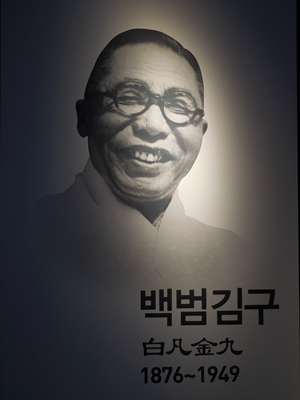올해는 봄을 건너뛰는가 봅니다. 한동안 아침 저녁으로 써늘한 날씨가 이어지더니 갑자기 여름이 되는듯 하기 때문입니다. 그래도 오월인데…. 그 맘으로 오늘 아침 제 가게 손님들께 오월찬가(?)를 띄웠더니, 손님 한분께서 이런 답을 보내왔습니다.
“You’ve expressed the same wisdom as is captured in Western culture as the ‘Golden Rule: Do unto others as you would have them do unto you’. If more of us followed the philosophy in these two expressions of being kind, respectful and helpful to everyone would eliminate much of the strife in human society.”
너나 할 것없이 사람들이 ‘남에게 대접을 받고자 하는 대로 너희도 남을 대접하라’는 황금율만이라도 쫓아살 수만 있다면 세상은 틀림없이 밝아질 것입니다. 그것이 힘들다면 역지사지易地思之, 곧 남을 이해하는 정도만 지키고 살아도 사람사는 세상에 가까울 것입니다.
이 모두가 너무 먼 곳이 아닌 아주 가까운 곳에서부터 시작할 일입니다.
오월에 담긴 무수한 이야기들을 창가에서 우는 새소리로 전해듣는 아침에….(아래는 오늘 아침에 손님에게 띄웠던 편지내용입니다.)
제가 종종 듣는 질문입니다. “너 어디서 왔니?” 또는 “중국인이니? 일본인이니?”
며칠전에도 똑 같은 질문을 받았었답니다. 질문에 대한 명확한 대답이라면 “한국에서 온 미국인”이 맞을 것입니다만, ‘Korea 또는 Korean’으로 대답한답니다.
좀 다른 질문을 받는 경우도 있답니다. 한국과 중국 또는 일본과의 관계나 한국인과 중국인 또는 일본인의 차이과 관계 등을 묻는 경우랍니다. 참 쉽게 답할 수 없는 질문이랍니다. 그럴때 제가 할 수 있는 답은 “가깝고도 먼 나라들”이랍니다.
세 나라가 모두 지리적으로는 가깝고 생김새도 비슷하지만 역사적 경험과 문화, 언어가 다르기 때문입니다.
역사적으로 중국과 일본은 한국을 지배한 적이 있었지만 한국은 두나라에게 지배를 받았을 뿐입니다. 이런 경험들로 세 나라가 서로 다른 점들이 많답니다.
세나라의 역사를 이야기하자는 것이 아닙니다. 지난 세기에 일본이 한국을 지배하고 있을 때 한국의 독립을 위해 평생을 치열하게 살다간 사람 가운데 김구라는 이가 있습니다.
그 이가 이런 말을 했답니다.
<지옥을 만드는 방법은 간단하다. 가까이 있는 사람을 미워하면 된다. 천국을 만드는 방법도 간단하다. 가까이 있는 사람을 사랑하면 된다. 모든 것이 다 가까이에서 시작된다.>고 말입니다.
제게 국가니 역사니 하는 말들은 너무 큰 것들입니다. 오히려 김구의 이런 말들이 쉽게 가슴에 와 닿습니다.
하루하루 살아가는 제 삶이 천국이 될 수도 있고, 지옥이 될 수도 있는데 그게 모두 제가 하기 나름이라는 가르침입니다.
참 좋은 계절인 오월입니다.
가까이있는 모든 것들을 사랑하므로 하루하루가 천국이 되는 나날이 되시길 빕니다.
One of the questions which is frequently asked of me is: “Where are you from?” or “Are you Chinese or Japanese?”
I was asked the same question the other day. Though the perfect answer may be “an American who came from Korea,” I usually answer the question with the word, “Korea” or “Korean.”
Sometimes I am asked slightly different questions. They are about the relations between China and Korea or between Japan and Korea and the differences between Chinese and Korean or between Japanese and Korean. They are not questions which I can answer so easily. The answer which I can give to those questions is that those countries are “close so close and yet far.”
That is because the historical experiences, cultures and languages are different from one another, even though the three countries are so close geographically and the appearances of those peoples are very similar.
 Though China and Japan had occupied Korea in the past, Korea has not occupied either of those countries. Because of the historical experiences including this, the three countries have lots of differences from one another.
Though China and Japan had occupied Korea in the past, Korea has not occupied either of those countries. Because of the historical experiences including this, the three countries have lots of differences from one another.
I’m not trying to talk about the histories of three countries. In the last century, when Japan occupied Korea, there was Kim Ku, one of the Koreans who had lived fiercely and fought for the independence of Korea.
He said:
“The way to make hell is simple. It can be done by simply hating close people. The way to make heaven is also simple. It can be done by simply loving close people. All begin from things which are close.”
Countries and histories are too big for me to grasp. Instead, things and words, such as what Kim Ku said, reach out to my heart more deeply.
I think that he taught me a lesson: This everyday life of mine can be heaven, or hell, and that’s up to me.
It is May, a really good and pleasant season.
I wish that your everyday life will become heaven by loving all which are close.


